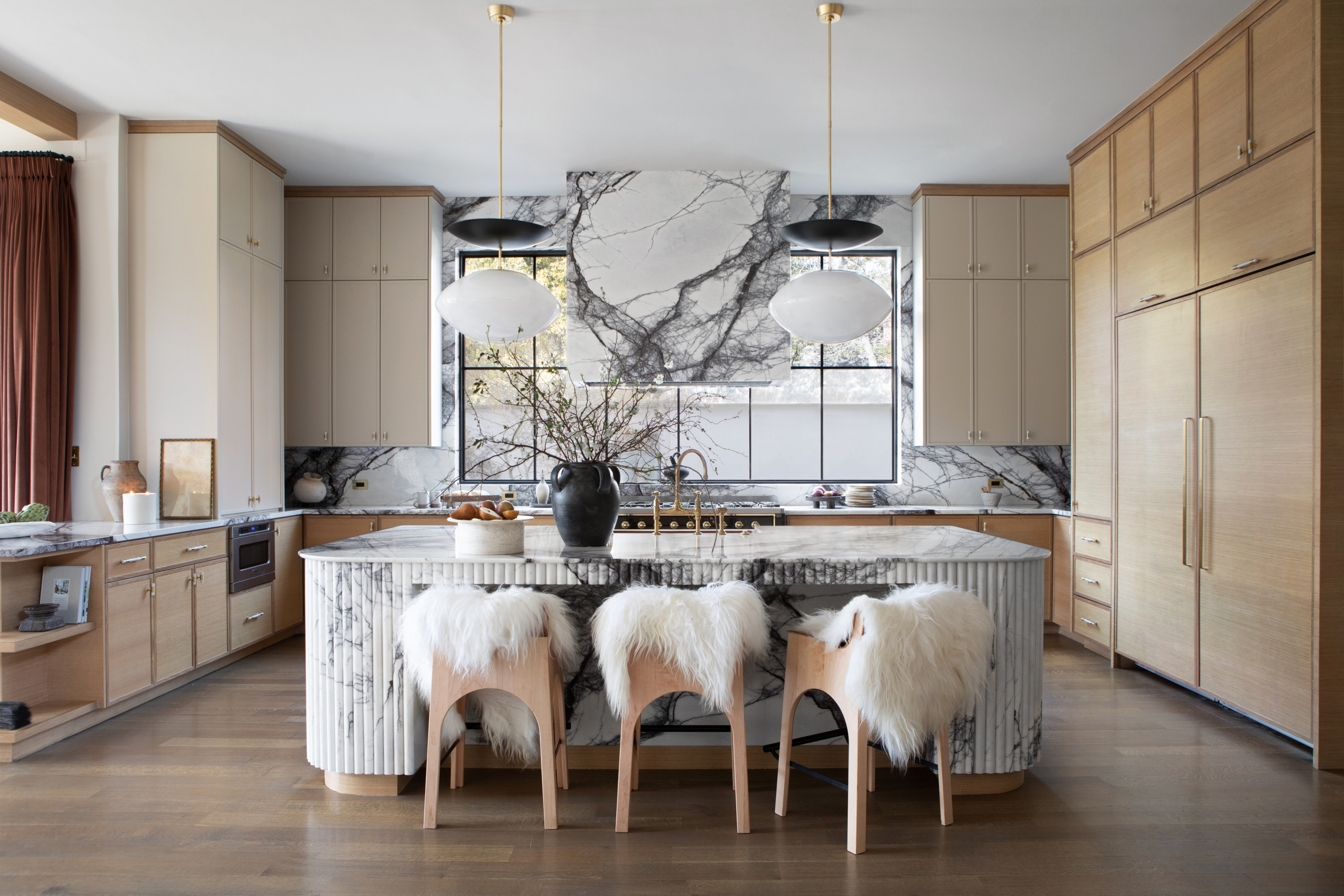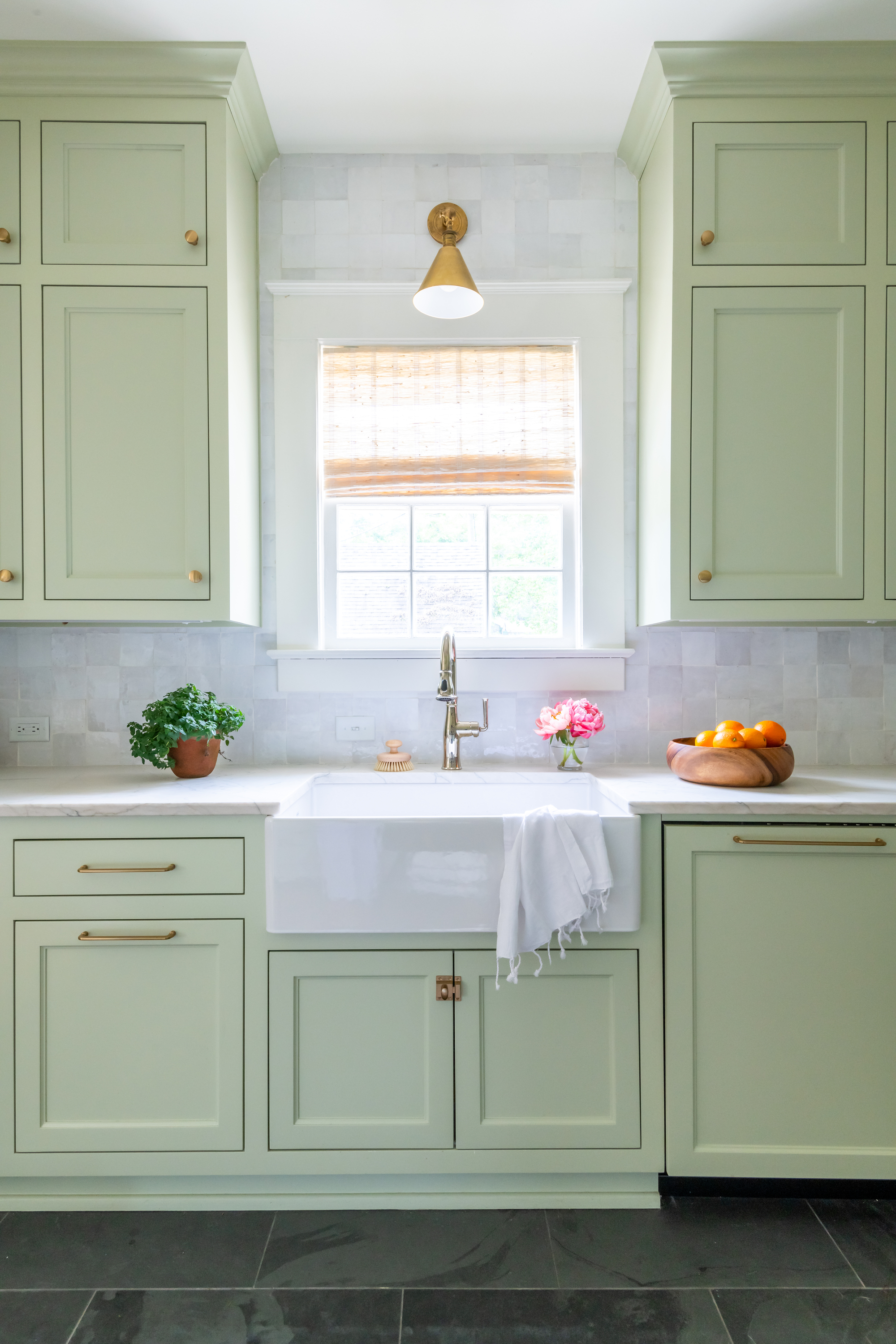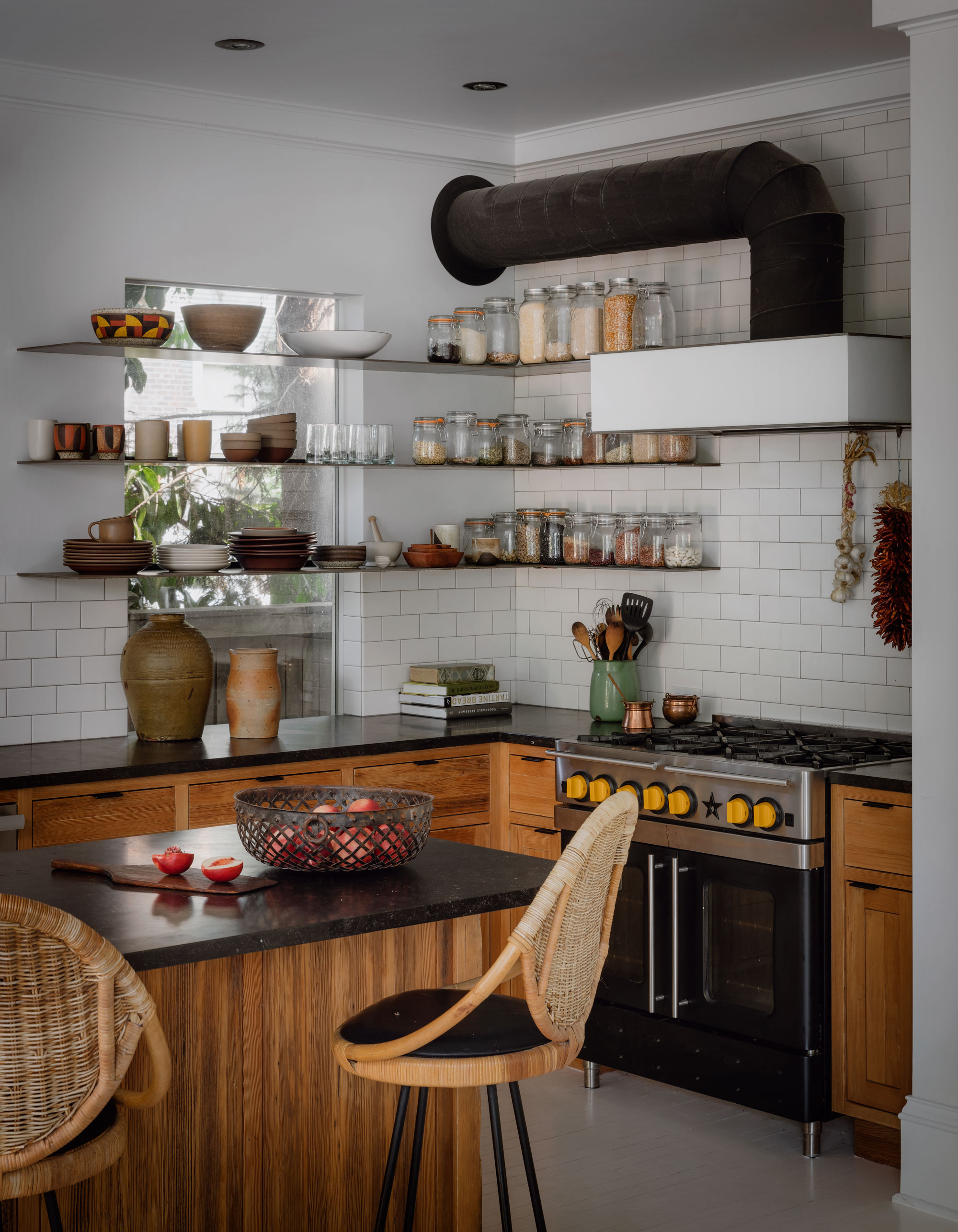
There are no hard and fast rules when it comes to kitchen backsplash. Some homeowners and designers like a low-profile splashback that doesn't go too far up the wall, in-keeping with a more minimalist kitchen. In this format, backsplash typically ends at the base of the upper cabinets or just an inch or two above the countertop. For others, the kitchen splashback takes on a starring role in the kitchen, creating a focal point that frames the window.
There are a couple of factors at play here to help you decide which look is right for you - the color, and material of your chosen splashback, and the budget for a start (you might want to think twice before you clad an entire wall with expensive Carrera marble!) So how high do you go? And is taking the kitchen backsplash around the window a good look? To settle the debate, we've spoken to the kitchen experts to get their advice.
Creating a wow-factor finish

First and foremost, a kitchen backsplash that goes up your wall and around your window can make a real impression. If you're looking to create a wow-factor modern kitchen, taking backsplash around windows is the look to go for.
For Alexandra Killion of Alexandra Killion Interiors, taking your backsplash around the window and to the ceiling elevates a standard kitchen to something that is seriously smart. ‘Yes, you should always take the backsplash up to the ceiling - even if that means placing it around windows. It looks finished and polished.’
Think about a showstopper material too. Something like a heavily veined marble always makes an impression, as used here by designers, Urbanology Designs. But marble has its drawbacks in that it can be pretty expensive. Simple ceramic or porcelain tiles might be a more affordable alternative, and you can still make a statement with a beautiful texture or dramatic color, just make sure to get the grout lines thickness right and in keeping with the kitchen's color scheme.
What's easier to clean?

Another reason you might want to take your backsplash to the ceiling and around the window is to keep your kitchen easy to clean. Paint is typically used on kitchen walls from above the backsplash and up to the ceiling. But it's a medium to be wary of if you're designing a working family space. This is because splashes and general usage mean paint jobs need to be redone every so often - more often than other rooms and the house like living rooms or bedrooms.
Typically, kitchens are long and rectangular, with a window at the end and placed over the kitchen sink. That puts the window at risk of splashes and makes it a go-to zone for backsplash. Using your backsplash between the window and the sink protects any exposed walls.
Consider upper cabinets or shelving

Think about the shelving and kitchen cabinets and how you might have to plan around these kitchen additions. 'It is indeed possible to install a backsplash around or halfway around a window,' says Lauren Lerner, CEO and founder of Scottsdale-based Living with Lolo. 'Planning is crucial when it comes to seamlessly integrating the tile around the window, and the key consideration lies in determining the most visually appealing placement in relation to the surrounding cabinetry.'
The more common look is to have your backsplash up to the bottom of your cabinets. If you have shelving, you might not want or need a tiled background because your shelves will be covered in decorative bits and pieces that will take the attention away from the backsplash. If you have a decorative kitchen, you can rely on your decor to create coziness and personality, instead of the walls.
Think about the material

Think about the material too. For this reason, Shelagh Conway, principal and founder of Austin-based Triple Heart Design is on the fence. 'You should take your kitchen backsplash around the kitchen windows! Well, maybe. But yes overall,' she says.
'This is a design decision that is determined by the materials chosen and the window type and style.
'It seems like a simple question but lends itself to some thoughtful preparation like the thickness of the material, the depth and height of the window, and what type of window. For example, is it casement with a handle crank in the way?'
Work out your budget

Ultimately, it all comes down to budget. Backsplash material isn't the cheapest. On the lower end, you'll find the likes of vinyl tiles, ceramic tiles, and even mirrors as inexpensive backsplash ideas, but on the higher end of the spectrum, marble, quartzite, or granite are hugely costly. If you are designing a kitchen on a budget, you might have to cut down on the sizing of your backsplash. This could be the difference between going for a material you love, but less of it, and a material that you don't like so much, but taking it right to the ceiling.







